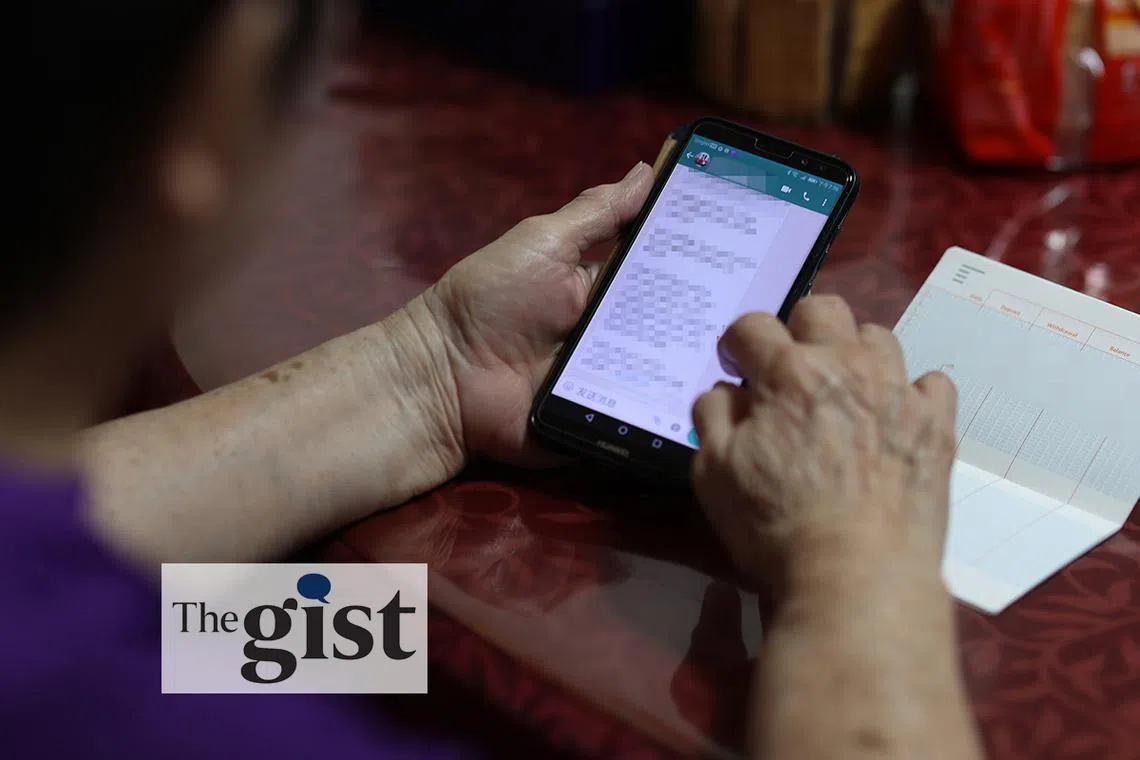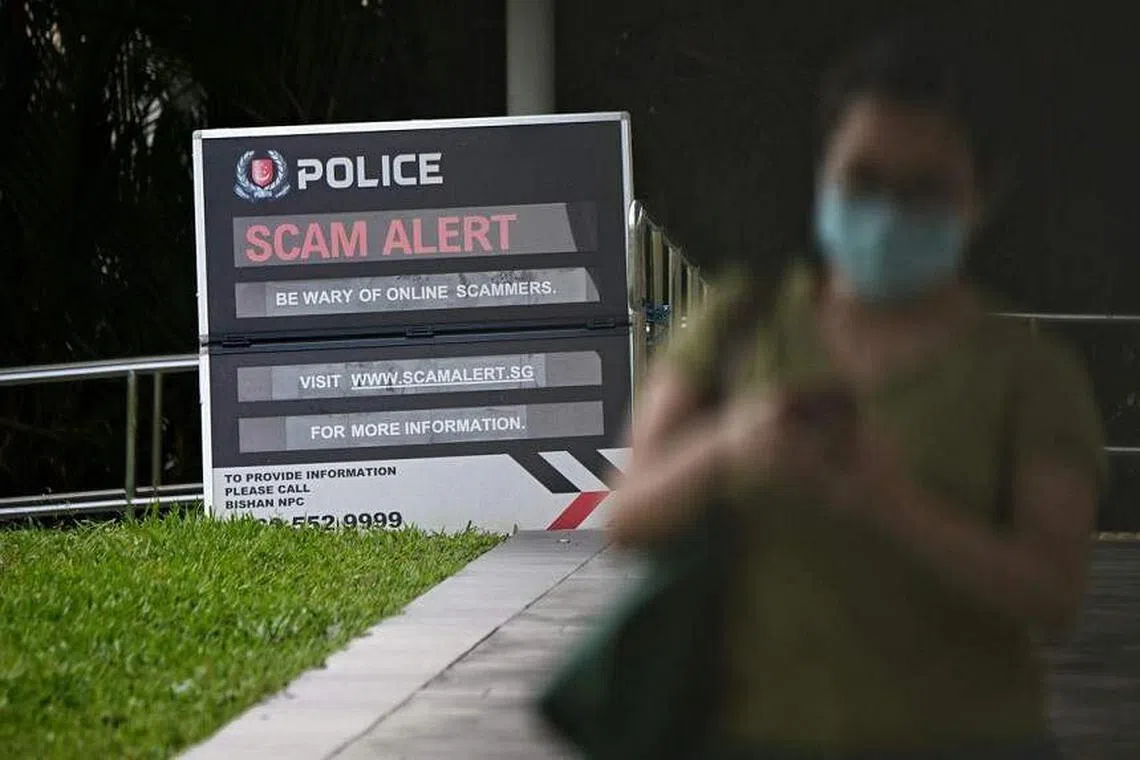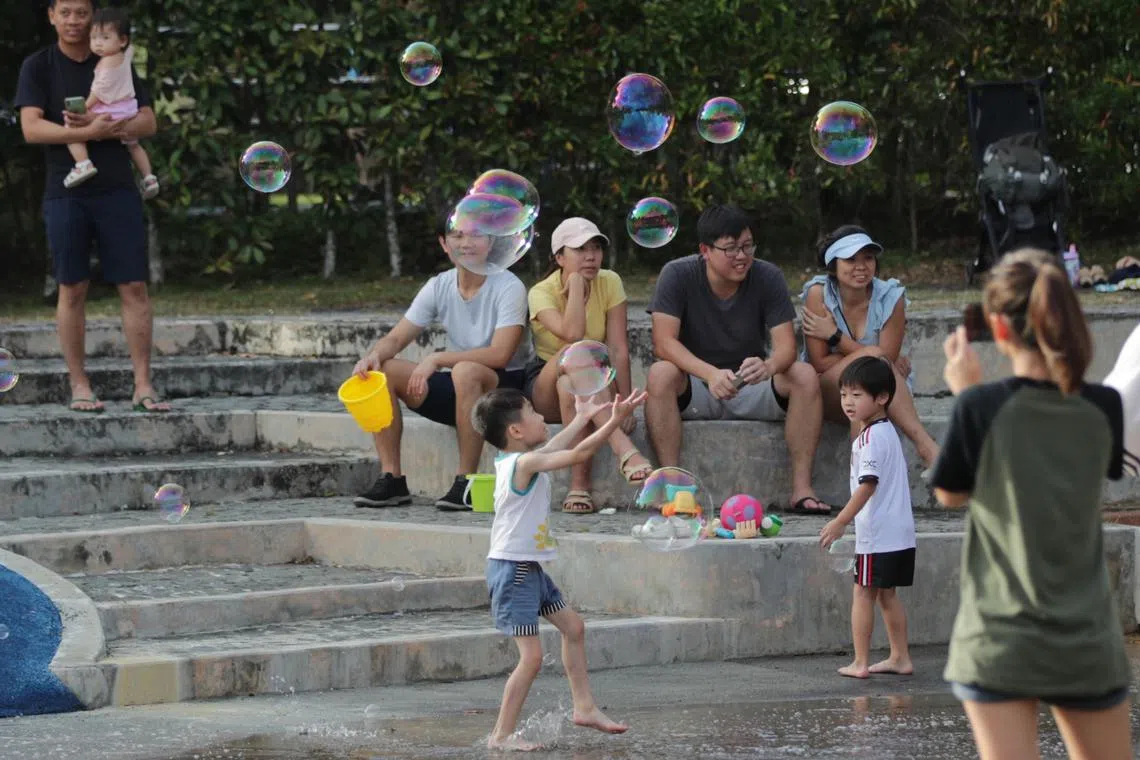The gist: New laws to deal with money mules and how to keep meritocracy sustainable raised in Parliament
Sign up now: Get ST's newsletters delivered to your inbox

New laws making it easier to prosecute money mules were proposed in Parliament.
PHOTO ILLUSTRATION: LIANHE ZAOBAO
Follow topic:
SINGAPORE – New laws have been proposed to crack down on money mules who help scammers. MPs and ministers also discussed social mobility and meritocracy on the second day of debates on the President’s Address.
Here are the key takeaways:
1. Getting tougher on money mules

New laws making it easier to prosecute money mules were proposed in Parliament on Tuesday.
PHOTO: ST FILE
New laws have been proposed to tackle the problem of money mules who help scammers siphon money from victims by sharing or selling their bank accounts and Singpass details to help launder scam monies.
The proposed changes to the Corruption, Drug Trafficking and Other Serious Crimes (Confiscation of Benefits) Bill and the Computer Misuse Bill were introduced in Parliament on Tuesday.
Why it matters
The police investigated more than 19,000 money mules from 2020 to 2022, but fewer than 250 were prosecuted because many claimed ignorance.
If passed, the amendments will make it such that money mules can no longer use this excuse when they sell their bank and Singpass accounts, or when they help scammers transfer monies.
Criminals have been using Singpass accounts to register companies, open bank accounts and sign up for new phone lines.
If passed, the new laws will shut such avenues for scammers and reduce the amount of money they can get away with.
2. Social mobility: All hands on deck

Minister for Social and Family Development Masagos Zulkifli highlighted various ways the Government will help sustain social mobility across generations.
ST PHOTO: GIN TAY
Singapore has done well to keep social mobility alive across generations, but this needs to be sustained through a concerted effort from everyone.
Minister for Social and Family Development Masagos Zulkifli highlighted various ways the Government will help, including strengthening policies to aid lower-income families and give all children a good start in life.
He also encouraged businesses, social service agencies, community partners and volunteers to work with the Government to avoid duplicating efforts.
Why it matters
A lack of social mobility in other countries has demoralised some young people, who do not believe they can achieve their aspirations or move out of their social class.
This leads to a fractured, weakened society. Singapore can avert a similar situation by sustaining social mobility, ensuring children have a better, brighter future and building a country with opportunities for families.
3. Rebranding Singapore’s meritocracy
Efforts to value diverse abilities and help people stay competitive, along with greater porosity in education pathways, are on the cards, as the Government mulls over how to redefine the Singaporean brand of meritocracy and keep it resilient and sustainable.
Education Minister Chan Chun Sing said that workers with “heart” and “hand” skills must also be fairly rewarded, and called on society to do more for those from less privileged backgrounds.
Why it matters
While the concept of meritocracy has allowed many Singaporeans to excel individually and accomplish much collectively, it has come under stress worldwide.
Mr Chan acknowledged that Singapore’s system is not perfect. If left unchecked, this could lead to dangers like social stratification over time, with the disadvantaged falling behind, while the privileged few continue to thrive under an entrenched system.
If you have a few more minutes…
Managing flexible work arrangements:
Employers will be required to consider requests for flexible work arrangements fairly as part of a set of Tripartite Guidelines to be introduced by 2024.
While they have the prerogative to accept or reject such requests, employers must have valid reasons for their decisions, though staff should also be reasonable in their requests, said Minister of State for Manpower Gan Siow Huang.
She said that implementing flexible work arrangements requires trust between employer and employees, as well as between colleagues at the workplace.
Malay/Muslim community pays it forward:
The mark of a strong social compact is when successful individuals give back to society, said Mr Masagos.
Many Malay/Muslim professionals such as lawyers, healthcare workers and soldiers have come forward as volunteers to serve those in need, such as by providing workshops and mentoring.
Volunteers and self-help groups like Mendaki have also helped improve Malay/Muslim educational outcomes, with 99 per cent of every Malay student cohort completing at least 10 years of education.
The Government is doubling down on its efforts to support families with young children with Project Dian@M3, a programme that provides support for Malay/Muslim families staying in rental flats, and will facilitate priority enrolment for disadvantaged kids into pre-schools.
Build a country for all ages:
Greater confidence should be given to seniors and the young to assure them that they are indispensable parts of Singapore’s social fabric, said Ms Sylvia Lim (Aljunied GRC).
She suggested reviewing the education curriculum from primary to tertiary to remove any stereotypes against age.
She also cautioned against pigeonholing young people’s issues into a handful of areas, and asked the authorities to consider what sort of participation would convince young people of a direct role in governance and policymaking.
She also reiterated the Workers’ Party’s call to lower the voting age from 21 to 18 years.


